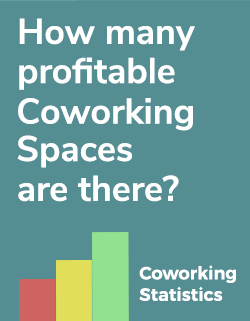In a rapidly changing world success and how we define it is changing as well. Around the web and in the developing coworking folklore are tales of coworking efforts gone awry. Many in the coworking ranks have heard about Hub in Berlin which still hasn’t recovered from a failed 2008 execution. Some have attributed this stunning failure to mismanagement and others chalked it up to the expensive desk rental rates.
Citizen Space has faced many delays in entering the Las Vegas coworking market and San Francisco’s beloved Summit coworking space closed in January of this year due to lack of funding. There is also this candid and detailed account of a failed coworking space in Egypt owing to management differences and unrealistic expectations.
In a recent Deskmag survey, coworking space owners or managers responded to questions about why their coworking spaces had failed. In one instance, the respondent said it was that that no solid community had formed or fully-developed. Another said that their space was too large and couldn’t sustain itself because it was free of charge. Still others responded that they weren’t able to get their business off the ground because of lack of financial investment or due to disputes amongst business partners regarding strategy.
Placing the Blame
According Alex Hillman of Indy Hall, coworking space failures often have more to do with the failure to build community than coworking space owners or managers want to admit. “The truth is that for every failure I've seen that blames it on some external factor, I've seen spaces succeed with those same external factors because they got the community part right.”
For the coworking manager who has confronted it, building a successful and sustainable community can seem like alchemy. “People mistake ‘gathering human beings’ for community” says Hillman. “Defining community is hard, but there are absolutely defining elements. People gathering is one of them, but it's the easiest and least meaningful.”
The Field of Dreams Fantasy
Jenifer Ross owner of W@tercooler, a coworking space in Tarrytown, NY, recently profiled in Entrepreneur Magazine, says the most common error that coworking managers and owners make is “building it and assuming people will just come... It takes a ton of educating, promoting and enticing folks into the space, as well as the member management, business management, PR, and the list goes on.” Hillman adamantly agrees, “Unfortunately, there aren't community elves who are looking for new coworking spaces to make communities in -- it's an intentional process. Counterintuitively, it's even harder to build community once you've got an empty space.”
Ross believes that to build community inside the coworking space, you need to engage the community outside of it. “We work very hard to connect to, involve and serve the community we are in, and in return, they support us.” It appears to be, in part, an issue of sustainability. The community needs to be sustainable, maybe more than the space -- jellies and pop up coworking are testaments to that. “It needs to be a sustainable business,” says Hillman, “but one that doesn't consume the community as they both grow. They two need to be complimentary and symbiotic, not parasitic.”
In her 2007 article Coworkers of the World Unite, Jessica Clark talks to Citizen Agency/Citizen Space founders Chris Messina and Tara Hunt and refers to them as techno-optimists. “These new techno-optimists are onto something, a tangible shift in the way many Americans interact. Relationships formed online are more frequently translating into face-to-face interactions, and vice versa. Coworking is a prime example of this change; it's social networking in meatspace.”
Continuing Clark says "Community is central to everything that Citizen Agency does...many see capitalism and community as diametrically opposed. The commodification of practically everything leads to a weakening of "community values."
Perhaps herein lies the rub. How can business and coworking co-exist if our ideas of what business and community are working in opposition to each other?








